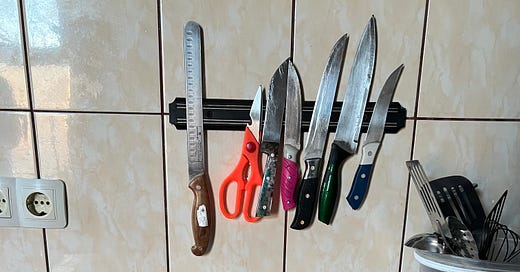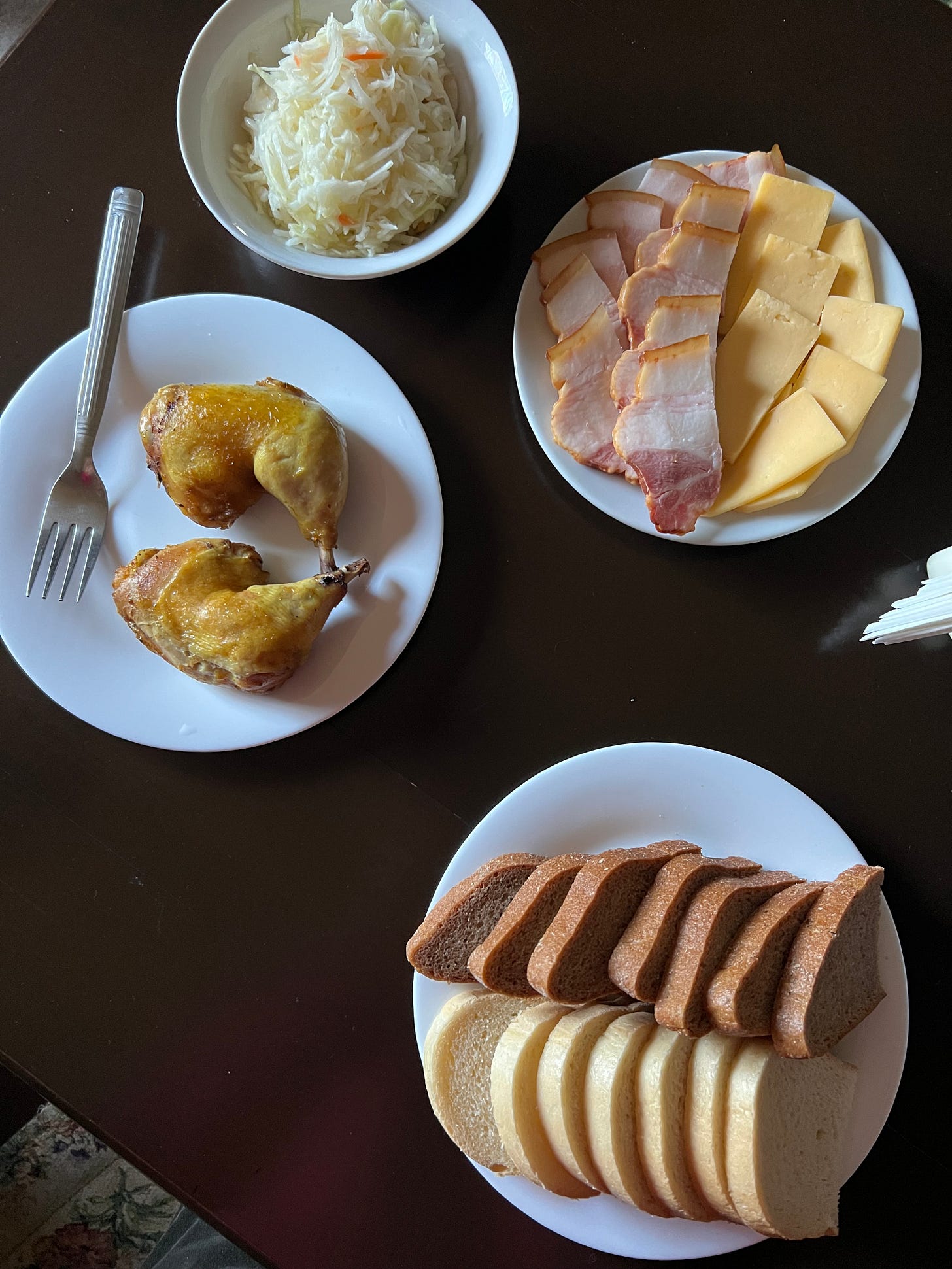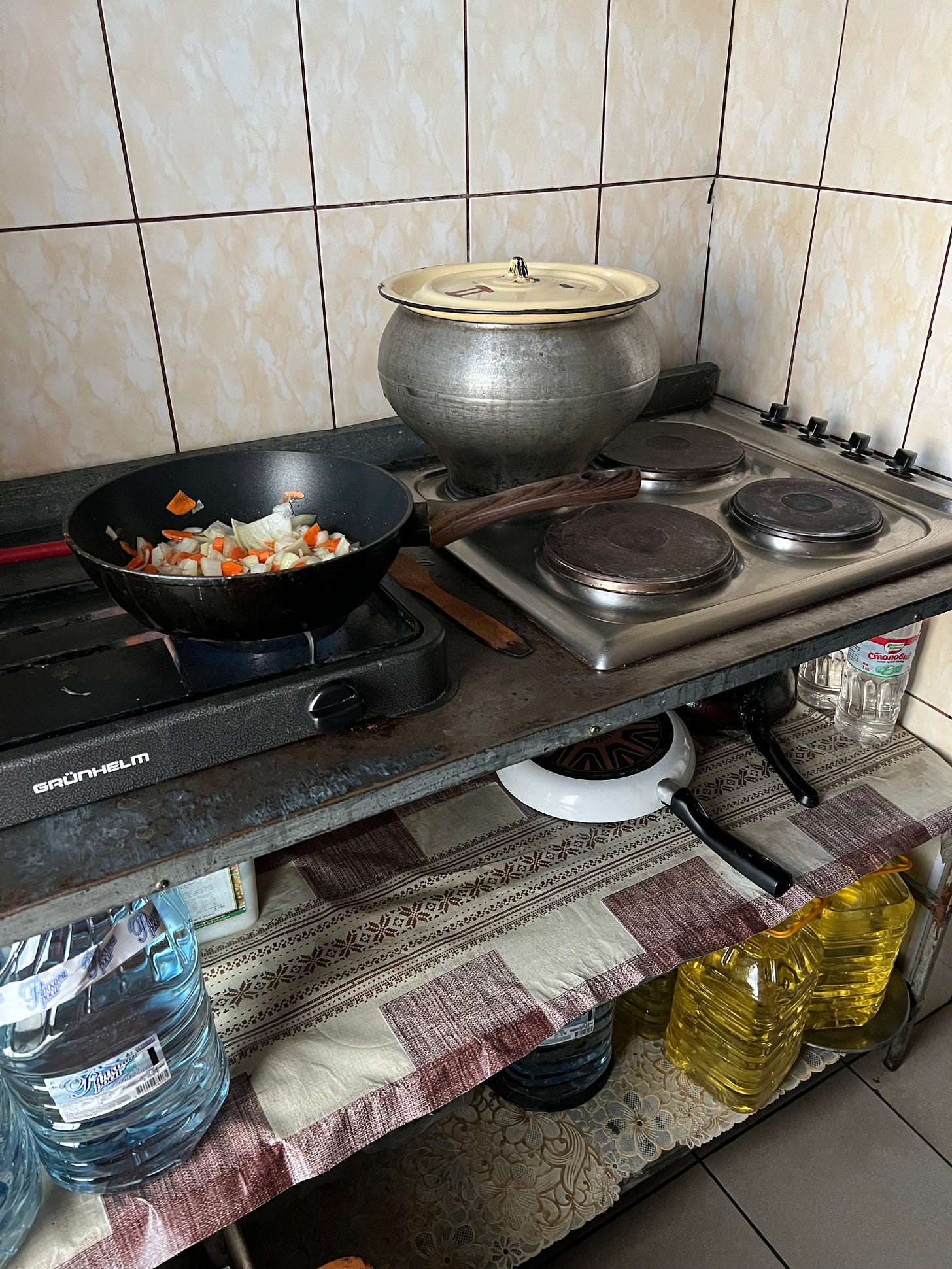Military kitchen
The day two soldiers from Kherson cooked me lunch - and told me about their work and why they volunteered to join up.
In the back of a shuttered cafe in the southern Ukrainian city of Mykolaiv, two soldiers were cooking me lunch. Their unit was based in Kherson city, but the constant attacks by Russian FPV drones had made it far too dangerous to meet in their location, so we had arranged it here, instead.
I had first come across Dmytro and Artem on a video shown on the State Border Guard Telegram channel. They had managed to create the equivalent of a professional restaurant prep kitchen in some kind of basement room, where they were cooking for their unit. I asked my fixer if we could track them down, and get the necessary permission to meet up with them. A few weeks later, we drove to Mykolaiv to hear their story.
Dmytro and Artem were both from Kherson and volunteered for the army: motivated by witnessing the traumatic impact of Russian occupation on their hometown. Dmytro had worked as a brand chef and manager for some high-end restaurants in Kherson and Kyiv, while 19 year old Artem had only just qualified as a cook.
They began cooking together for the 79th detachment of the State Border Guards, preparing hundreds of fresh meals a day for their unit. Sometimes they packed food into large thermos containers which were delivered to forward positions - while food packages could even be dropped off by drone, right up to the zero line.
Our excellent lunch
Keeping their field kitchen supplied with fresh produce has involved a huge logistical challenge, but like most Ukrainians - the pair have been incredibly resourceful: “Here in Kherson there is a lot of shelling, and drone attacks, but sometimes I think we manage to have a better supply system than my restaurant had before the war”, Dmytro said. “Back then, I always had to hunt for someone who could deliver what we needed. But now, we can get everything we need directly to our positions, so we can work without any restrictions”.
Military life could hardly be more different from their old jobs in civilian life - and neither of them had any experience of the army before the full scale war. “The biggest challenge, of course, is working in very dangerous conditions. In Kherson it is very difficult because Russian drones can operate in any corner of the city.” In their makeshift army kitchens, the pair have done their best to prepare the best possible meals for their colleagues. “We make main dishes, salads, always something fresh. At Christmas or New Year we will collect some extra money so we can make something special. And of course we can often get some gifts from our families, usually sweets or cookies sent by post, which really helps to raise morale”.
Working as a team, the two men are able to divide up their tasks. “We do more or less the same work. But say we begin to prepare soup, then Artem can go on to cook the second dish or cut up salad, and we can start to prepare something for the next day, depending on our mood.”
Kitchen all in order
All the time we talked, they had been chopping onions and carrots, frying them on the stove to make the base for soup. They laid out slices of salo - pork fat - and white cheese on a plate, and some dark rye bread on another. There was some grilled chicken and a cabbage salad. Simple, but tasty and nutritious. I asked how they had managed to make a makeshift kitchen in a basement look quite so professional. “We managed to make it work as if it were our experience in restaurants. And that’s one of the reasons I signed this contract, to make something really tasty for the boys in the army”, Dmytro said. “We have strict controls on things like fresh produce, and I would say the quality of our menu is rather high.” It all helps with morale. “A hungry soldier will not be as efficient at the position. So if they are not hungry and they have good nutrition, it will be better.”
We finished lunch and got up to go: the men thanked me for being interested in their work: a life which they had never expected, but which they were determined to use in the service of others. “We will work like this until our victory”, Dmytro told me, as they headed back to the kitchen to clean down, before the road back to Kherson.







Thank you for sharing this story!
Thank you Felicity